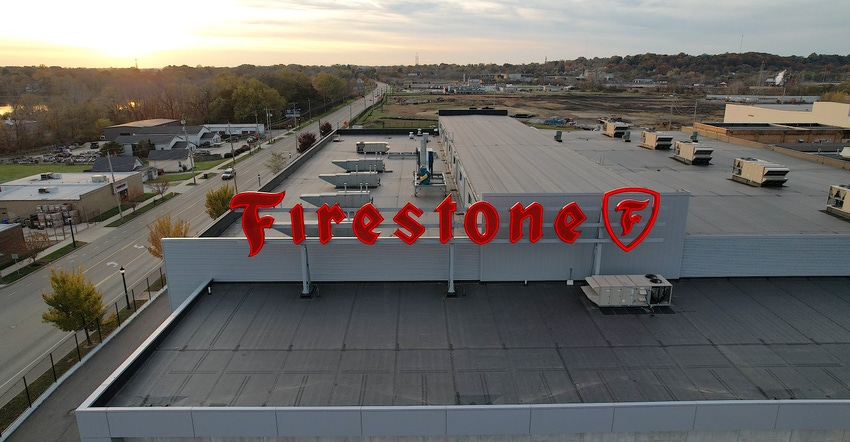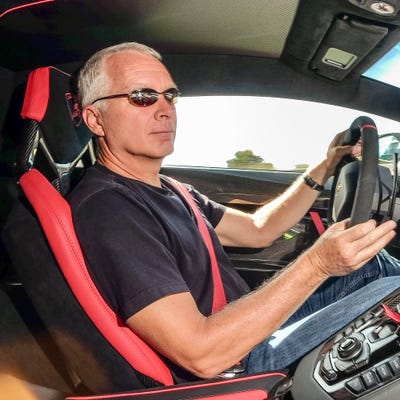The ATPC is the first new tire plant in Akron since World War II.

Akron, Ohio was once the world center of automotive tire manufacturing, and while its status may have fallen from its heyday, Firestone has reinforced its position in the city by opening its new Advanced Tire Production Center.
The company’s $21 million, 80,000 square-foot investment is across the street from the Bridgestone Americas Technology Center, one of three major R&D centers for Firestone’s parent company, Bridgestone.
The ATPC features state-of-the-art manufacturing technologies to advance innovation in race tires. It will also manufacture small batches of specialty prototype tires for testing and development purposes for both racing and on-road applications.
This new facility is designed for more efficient and sustainable race tire production, so it uses 60 percent less energy than the company’s previous race tire manufacturing facility. This was achieved through design and specification enhancements such as shrinking the ATPC to a more compact building footprint, insulating the roofing, employing a more efficient boiler system, and using high-mounted LED lighting throughout the plant.
The ATPC is supported by a new $6 million test track adjacent to the ATPC for passenger tire testing and development.
It may be surprising that the company would need to build a new factory that focuses mainly on tires for the IndyCar series, but each season that series uses more than 25,000 tires. Firestone is proud of its history in IndyCar, which dates to providing the tires on the winning car in the inaugural Indianapolis 500 in 1911. The company has announced that it will also provide tires for the Indy Lights support series starting in 2023, and those tires will also come from the ATPC.
A significant part of the ATPC project for people in the city of Akron was that the new building is the new home of the company’s signature Firestone rooftop sign, which had been on a nearby building for more than a century, explained Jerry Morris, Senior Manager of Technology Center Operations.
Construction of the ATPC, as the first new tire plant in town in more than 70 years, attracted onlookers. “What was really neat about too was, the community, they’d actually pull up lawn chairs and watch from the sidewalk,” Morris said. “The Firestone shield is actually the shape of the streets in Firestone Park. You have a lot of historical significance here. It made me very proud to do this job. It wasn’t just another building.”
And if that wasn’t enough, the company decided that the ATPC would be the new home for the refurbished Firestone sign. Because this decision was made late in the process, Morris said that they had to make changes to the new building.
“We actually had to cut our new floors up to get new structure to hold the sign,” he recalled. “If you knew the sign was going to be there, the structure would have been there to hold it up.”
The century-old sign was in need of substantial repairs after enduring a hundred Ohio winters. “The sign went out, it was off campus probably five or six months,” Morris said. “It went down to the Cincinnati area and they restored it. The original structure of the sign is there, the original letters. We had it powder coated with the Firestone Red, so hopefully, that’s on the building for another hundred years.”
In true early-20th-century style, the sign had been illuminated with neon lighting. For the rebuild, that was replaced with modern, power-efficient LEDs, Morris reported. “We updated to LED lighting rather than the old neon lighting, which was getting very difficult to maintain just because of the age of it.”
The sign shines down on Firestone’s new test track, which provides a convenient venue for ATPC engineers to test new designs quickly. “The track is a local test center,” Morris explained. “The local engineering teams can do some smaller-scale stuff like wet track, vehicle dynamics, noise and vibration, which they can measure here. It is great for the engineers to have something in the back yard to go to and evaluate their tires before they go on for further testing and evaluation.”
About the Author(s)
You May Also Like





